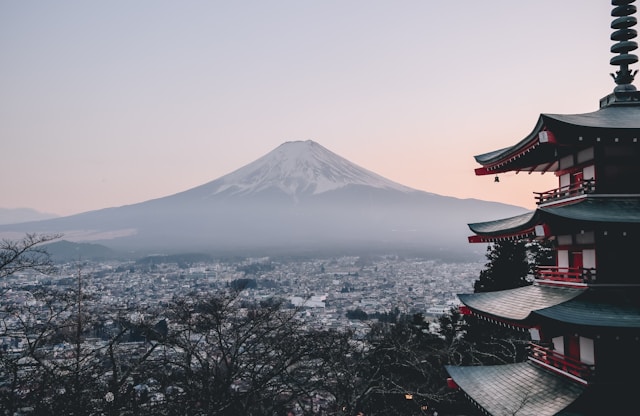Women of the World: Mieko Kawakami offers a unique look into contemporary Japan
The recent surge in popularity of Japanese authors has given us Brits access to many new and legendary authors alike. According to the Guardian, 43% of the top 40 translated fiction titles for 2024 were from Japanese authors. From new bestsellers like Asako Yuzuki’s ‘Butter’ to old classics from the minds of Yukio Mishima or Haruki Murakami, Japanese literature has certainly witnessed a new boom in the last few years. However, to me, the standout author from these new translations is clear: Mieko Kawakami.
Kawakami has been writing in Japan since the mid-2000s, receiving a wide range of awards for her work. However, it was only in 2018, when her novella ‘Ms Ice Sandwich’, was translated into English, that many of us were able to access her work.
Since then, her uniquely lyrical and haunting, women-centred narratives have taken on a life of their own in the Western literary consciousness
Since then, her uniquely lyrical and haunting, women-centred narratives have taken on a life of their own in the Western literary consciousness. Kawakami balances nuanced takes on what it means to be a woman or a young person in modern-day Japan, within raw yet tender prose.
Her most widely loved and perhaps also widely hated novel: Kawakami’s ‘Breasts and Eggs’ is where I’d recommend your journey through the author’s work should start. A novel in two parts, we follow Natsuko, a young, working-class Japanese woman through the harsh realities of womanhood. Interestingly, the novel itself is split in two by the work of two separate translators for each section. Sam Bett and David Boyd’s separate translations split the book in two more than just thematically, truly emphasising the journey and progression of the main character.
The first section follows our protagonist throughout a visit from her sister, Makiko, and her niece, Midoriko. The first section narrows in on the female body, exploring all aspects from puberty to beauty standards, without ever holding back. The second part time jumps a decade, with Natsuko now a successful writer, she contemplates having a child. However, she wishes to have a child as a single mother, through a sperm donor. Kawakami takes a refreshing view on motherhood, unafraid to take on more taboo perspectives. Motherhood is presented as beautiful and hopeful, yet Kawakami simultaneously presents it as oppressive and, at times, selfish.
In stark contrast to the feminist musings of ‘Breasts and Eggs’, is Kawakami’s first full-length novel ‘Heaven’. Instead taking on the narrative of a 14-year old boy, Kawakami depicts the brutal and relentless bullying he suffers from his peers. Interwoven with philosophical and religious meditations, the book explores the ways in which the unnamed protagonist and his similarly tormented classmate Kojima deal with their situations.
As the two characters’ relationship grows, they learn to rebel and resist their tormentors in their own unique ways. Kawakami’s prose is raw and often brutal, yet at times lyrical, providing pockets of hope within the character’s suffering
As the two characters’ relationship grows, they learn to rebel and resist their tormentors in their own unique ways. Kawakami’s prose is raw and often brutal, yet at times lyrical, providing pockets of hope within the character’s suffering.
Finally, Kawakami’s most recent novel, and my personal favourite, is 2011’s ‘All the Lovers in the Night’. Much more subtle than the adolescent brutality of ‘Heaven’ or the grand ideas of ‘Breast and Eggs’, is a quiet, lyrical exploration of friendship and loneliness. We follow Fuyuko, a 35-year-old proofreader in contemporary Japan, who explores what it means to love and be loved in the modern world. Fuyuko’s life changes drastically when she falls in love with an older man named Mitsutsuka. Kawakami also explores women’s roles in society, with Fuyuko a single woman, Noriko a woman stuck in an unhappy marriage, and Hijiri a woman expecting a child on her own. All three women face criticism for their chosen roles – society will not let women win whatever role they choose. ‘All the Lovers in the Night’ is certainly Kawakami’s ‘quietest’ novel, but the subtle beauty of her prose and musings on love and relationships carries it above all her other work, in my opinion.
Kawakami’s novels only began being translated into English in 2018, with this recent international success coming as no shock to her large Japanese fanbase. Her works have been widely praised in Japan, receiving awards such as the Murasaki Shikibu Prize or the Akutagawa Prize. This success has only been revitalized by their English translations, with ‘Heaven’ being shortlisted for the 2022 International Booker Prize. Kawakami also writes short stories and poetry, but began her career as a well-known blogger in Japan. From 2015 to 2017, Kawakami conducted a series of interviews with legendary author Haruki Murakami, which have now been edited into a book.
Kawakami is as unafraid in these interviews as she is in her prose, bluntly critiquing Murakami asking ‘I’m talking about the large number of female characters who exist solely to fulfill a sexual function’. She bluntly asks him about the oversexualisation of women in his books, opening up a much-needed dialogue about feminism and literature in Japan. Kawakami provides her novels with authenticity, as she clearly cares deeply about the topics she writes about.
Portraits of modern-day Japan: Mieko Kawakami’s novels explore everything from the meaning of violence to loneliness to motherhood. She expertly balances the harsh and brutal themes of her works with her poetic, lyrical writing style, creating novels which are truly unique. Kawakami has truly become both a pillar of both modern Japanese literature and my own bookshelf; I cannot recommend her work enough, and cannot wait to see what she does next.

Comments